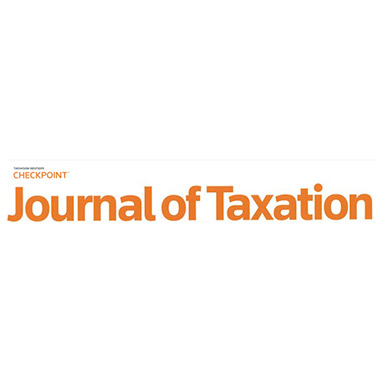The stakes are high when it comes to criminal FBAR violations. With potential penalties, including substantial fines and imprisonment, it is crucial to have skilled legal representation.
Our team can greatly alleviate some of the stress and uncertainty if you are facing criminal charges. We pride ourselves on providing sound legal counsel and can help fight potential criminal charges related to FBAR violations. The consequences of such charges can be severe and have long-lasting implications for your future. As such, you want someone experienced in criminal defense and with a proven track record of success in similar cases.
Call McCormick Tax Law at (888) 973-3503 for a free case review with our attorneys for criminal FBAR violations.
FBAR Requirements You Must Meet to Avoid Criminal Violations
In order to prevent criminal FBAR violations, it is important to have a clear understanding of who is obligated to file an FBAR. As per the guidelines provided by the Financial Crimes Enforcement Network (FinCEN), any U.S. individual or entity is required to file an FBAR if they had any financial interest in or authority to sign over a financial account that was located outside of the United States.
They must also file if the total value of all the foreign financial accounts exceeded $10,000 at any time during the reported calendar year. Our attorneys for criminal FBAR violations can help you meet these many requirements. The following guide will help you avoid being charged with criminal violations:
Determining Personhood
The term “U.S. person” includes U.S. citizens, U.S. residents, corporations, partnerships, limited liability companies that were formed or created in the United States or under the laws of the United States, and trusts or estates that were established under the laws of the United States.
Understanding Financial Interest and Signature Authority
To comply with FBAR requirements, it is also important to understand what constitutes a financial interest and signature authority. A U.S. person has a financial interest in a foreign financial account if they are the owner of the record or hold legal title, whether the account is maintained for their own benefit or for the benefit of others. They also have a financial interest if the owner of record or holder of legal title is acting on their behalf.
Signature authority, on the other hand, refers to the authority of an individual to control the disposition of assets held in a foreign financial account by direct communication to the bank or other financial institution that maintains the account.
Identifying Foreign Financial Accounts
Another key FBAR requirement is identifying what constitutes a foreign financial account. This includes but is not limited to, bank accounts such as savings accounts, checking accounts, and time deposits, brokerage accounts, commodity futures or options accounts, insurance policies with a cash value, mutual funds, and any other accounts maintained with a financial institution or broker located outside of the U.S.
Meeting the Filing Deadline
To avoid criminal FBAR violations, it is crucial to meet the filing deadline. The FBAR must be filed electronically through the FinCEN’s BSA E-Filing System. The FBAR is an annual report due April 15 following the calendar year reported. If you fail to meet this deadline, you could be subject to penalties, including potential criminal charges.
The Consequences of Non-Compliance with FBAR Regulations
The penalties for criminal FBAR violations are severe and can drastically impact an individual’s life. They fall into two main categories: monetary fines and imprisonment.
The monetary fines for criminal FBAR violations can be substantial. Under the law, a person convicted of willfully failing to file an FBAR can be subject to a penalty of $250,000 or 50% of the balance in the account at the time of the violation, whichever is greater. This penalty applies for each year an FBAR was not filed, meaning that the fines can quickly accumulate if multiple years are involved.
In addition to monetary fines, criminal FBAR violations can also result in imprisonment. The maximum prison term for willful failure to file an FBAR is five years. As with the fines, this term applies for each year that an FBAR was not filed. Therefore, if a person failed to file an FBAR for several years, they could potentially face multiple five-year prison terms.
Types of Criminal FBAR Violations
The most straightforward type of criminal FBAR violation is the willful failure to file an FBAR. This occurs when a U.S. person who meets the threshold for filing an FBAR knowingly and intentionally fails to do so. The critical element here is the aspect of willfulness; the individual must be aware of their reporting obligations and choose not to fulfill them.
Another type of criminal FBAR violation is filing a false FBAR. This happens when a U.S. person files an FBAR but knowingly includes incorrect information. This could involve underreporting the value of foreign accounts, omitting certain accounts, or providing misleading information about the nature of the accounts or the U.S. person’s authority over them.
A more complex type of criminal FBAR violation involves concealing income from foreign sources. This violation goes beyond the FBAR itself and typically involves additional criminal charges, such as tax evasion or fraud. For instance, a U.S. person might transfer income to a foreign account and then fail to report it on their U.S. tax return. If they also fail to file an FBAR for the foreign account, they could face charges for both tax evasion and the FBAR violation.
How Our Attorneys Can Help in Criminal FBAR Cases
An attorney plays a crucial role in defending against criminal FBAR violations. Given the complexity of the laws involved and the serious potential consequences, it is essential to have legal representation from an attorney experienced in this area.
Pre-Trial Representation
Our team can represent you during investigations and negotiations with the Internal Revenue Service (IRS) and the Department of Justice (DOJ). We can help protect your rights, ensure you understand the process, and work towards a favorable resolution. Our firm can also advise you on how to comply with FBAR requirements in the future, helping you avoid further legal issues.
Representation During the Trial
If your case goes to trial, we can also represent you in court. Our team can challenge the government’s evidence, present evidence on your behalf, and advocate for your interests.
Post-Trial Representation
Even after a verdict has been reached, an attorney can continue to assist you. We can help with appeals, negotiate payment plans for fines, and provide advice on how to comply with any court-ordered requirements.
Our Attorneys For Criminal FBAR Violations Can Help
For a free evaluation with our attorneys for criminal FBAR violations, contact McCormick Tax Law at (888) 973-3503.










